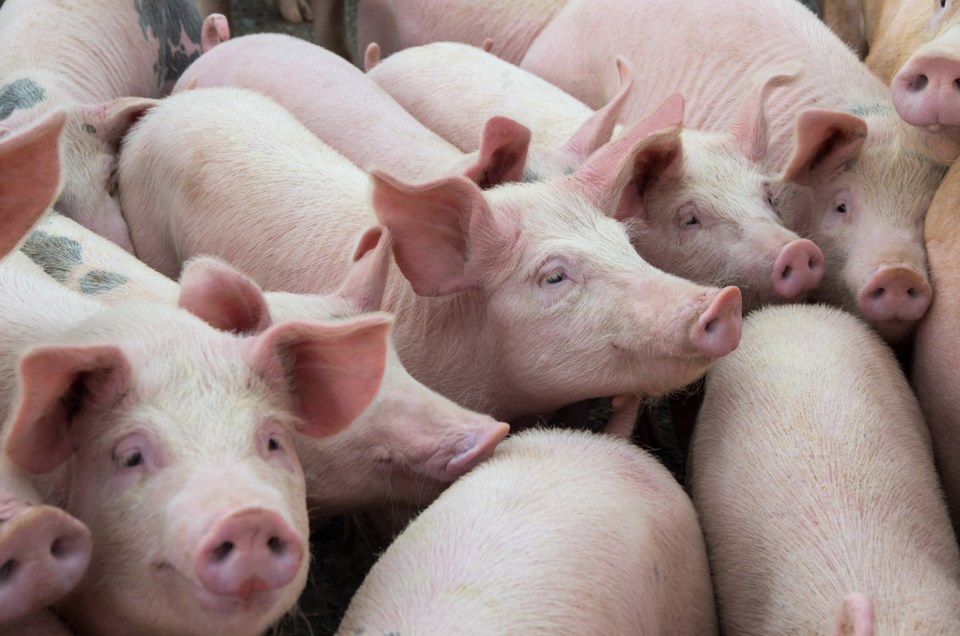The scourge of African Swine Fever (ASF) has invaded two more Asian hog populations.
South Korea and the Philippines have both found infected herds in their hog industry, bringing the number of Asian nations with ASF to nine.
China, home to one-quarter of the world’s pigs, has lost an estimated 33 per cent of its 350 million herd.
An analysis by Angela Zhang of IQC Insights indicates the virus has increased pork prices in China by 67 per cent as the live pig herd declined by almost 40 per cent.
Pork imports have increased by 36 per cent while alternate meats — chicken, duck, beef and mutton — have seen higher demand.
Beef imports are up 56 per cent to 866,000 tonnes. Beef prices increased 12.1 per cent with chicken prices up just over 15 per cent.
According to the analysis, Chinese are eating less pork due to higher prices. The short 30 week to 40-week breeding cycle for chickens has allowed larger supplies of that meat.
The suggested need to import 10 million to 15 million tonnes of pork to China has been offset by shifts in meat consumption.
Australia has been one beneficiary of increased pork import and import tariffs on pork have been suspended.
Canadian pork imports are still suspended over so-called irregular documentation of some shipments.
Some cities have released part of their emergency pork reserves at discounted prices to offset lower pork supplies.
Meanwhile, Chinese officials claim they will have enough pork for the mid-autumn and lunar new year celebrations.
Concerns about spread of ASF grows in other pork-producing nations. The United Kingdom minister of agriculture told a farmer union conference the U.K. can expect ASF within one year.
A representative from the U.S. National Pork Council, Dr. Dave Pyburn, says China shows no signs of having the virus under control.
The top question is “what are the chances it will enter the U.S.?”
The virus spreads from travellers tracking it in or from smuggled infected pork products.
Ron Walter can be reached at [email protected]




